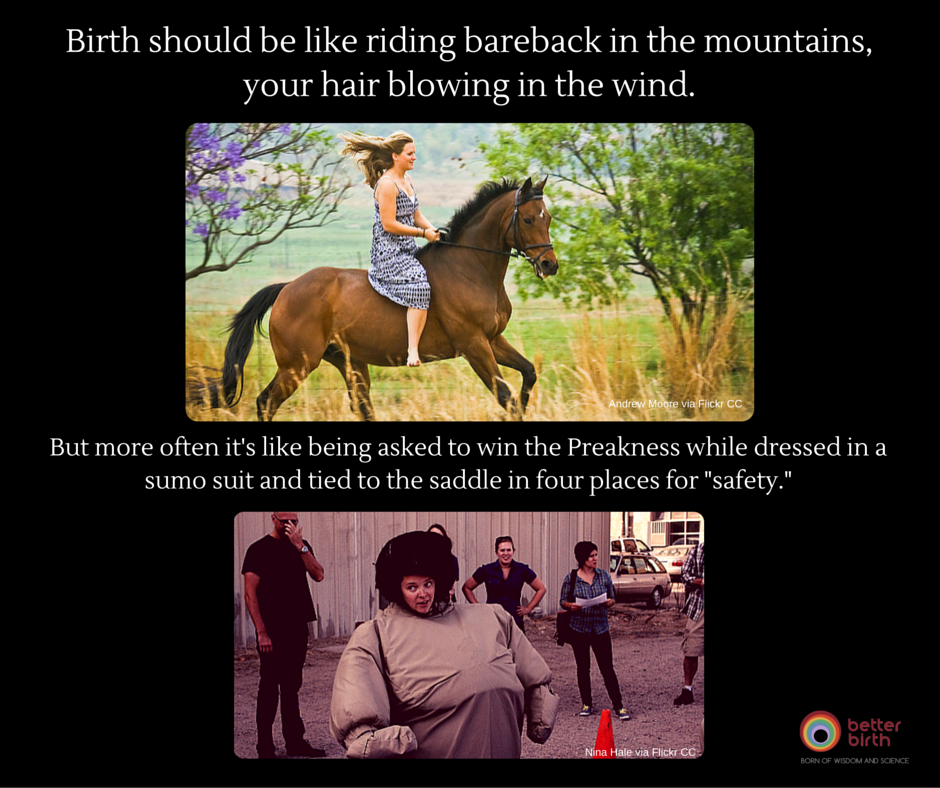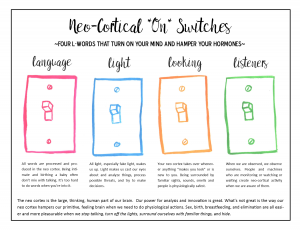
Birth is a physiological, instinctual act. We muss it up considerably with our meddling and medicine and science. That’s not to say that science doesn’t sometimes help and for that we are very grateful.
It would be nice if science could just wait until it was called on instead of insisting it manage everything along the way. Medicine and science are the spare tire and jack kit, the roadside assistance and sometimes the ambulance that comes when it is called.
There is no need to ride in an ambulance and be followed by a roadside assistance truck everywhere you go.
Hospital birth could be so much better. It could be like bareback riding with your hair blowing in the wind, the event medical staff standing by in the first aid tent just beyond the tree line.
But it’s so often more like being asked to win the Preakness while dressed in one of those blow-up sumo suits and tied in four places to the saddle for safety.
Props to you if you still cross the finish line.
What can you do to help birth proceed physiologically, safely, in a hormone-friendly way? You can avoid the Four Ls.
This starts with turning off your neocortex. Your neocortex is the big, thinking, human part of your brain. Our power for innovation and analysis is great. So great that it hampers our hormones and gets in the way of physiological actions. Turn off your mind to have sex. Turn it off to have a baby.
This is all easier at home, but it can be approximated any place you are respected.
Four L-Words to Avoid
Language
All words are processed and produced in the neocortex. Being intimate and birthing a baby often don’t mix with talking. It’s too hard to do words when you’re into it. Do you like to talk to people while you are pooping?
Light
All light, especially fake light, wakes us up. Light makes us cast our eyes about and analyze things, process possible threats, and try to make decisions. Making babies and getting babies out both go more smoothly by candlelight.
Looking
Your neocortex takes over whenever anything “makes you look” or is new to you. Being surrounded by familiar sights, sounds, smells and people is physiologically safest, especially in birth.
Listeners
When we are observed, we observe ourselves. People and machines who are monitoring or watching or waiting create neocortical activity when we are aware of them.
Summary
The neocortex is the large, thinking, human part of our brain. Our power for analysis and innovation is great. What’s not great is the way our neocortex hampers our primitive, old brain when we need to do primitive, physiological actions. Sex, birth, breastfeeding, and elimination are all easier and more pleasurable when we stop talking, turn off the lights, surround ourselves with familiar things, and hide*.
Looking for a way to remember these tips or share them with others? Check out the Neo-Cortical “On” Switches handout available as an instant download from Better Birth Graphics.






